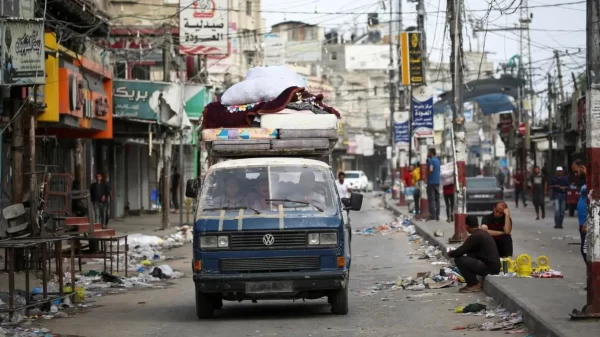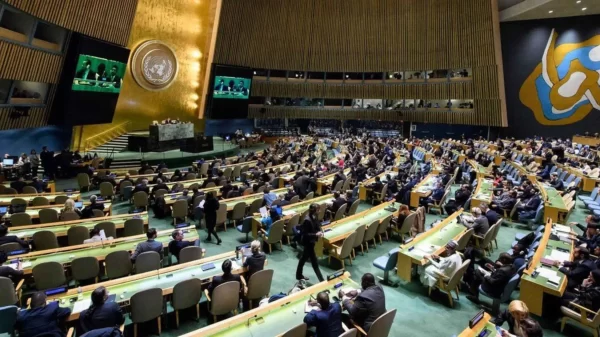DOHA, Qatar (Transatlantic Today) – Qatar’s fast-growing GDP and rapid infrastructural development have drawn hundreds and thousands of expats looking to improve their lives.
Around 2 million individuals are employed in Qatar today. The government places a high priority on the wellbeing of immigrant workers and is dedicated to modernizing Qatar’s labor laws and practices in order to create a system that is suitable for both employer and employees.
Labor law is a complicated problem that will take time to resolve. Qatar, on the other hand, has undertaken major changes in recent years to enhance labor laws and improve migrant worker safeguards. Qatar, in particular, has:
- New rules have been enacted that eliminate the requirement for most workers to get departure permits in order to leave the nation.
- Regulations were announced that would allow workers to find another job without needing a No-Objection Certificate (NOC) from their prior employer.
- A nondiscriminatory minimum wage was established.
- In Tunisia, India, Indonesia, Bangladesh, Nepal, Pakistan, Sri Lanka, and the Philippines, 20 Qatar Visa Centres (QVCs) were announced, which would speed up the recruiting process and guarantee that laborers are not abused in their native countries.
- Created a Workers’ Welfare and Insurance Fund to protect and care for laborers, as well as ensure their rights and promote a safe and healthy working environment.
Prominent humanitarian organizations and UN bodies have praised Qatar’s changes. Qatar is now the Gulf’s labor reform leader, since its changes are legitimate, long-lasting, and the result of years of meticulous preparation, unlike those in the region.
In recent years, the Qatari government has adopted a number of key labor changes, including:
The bare minimum wage
Qatar implemented a minimum wage of QAR 1,000 in March 2021, which extends to all workers in Qatar throughout all industries, even local workers. Unless given by their company, the company must also offer QAR 500 each month for housing and QAR 300 each month for meals.
Certificates of No Objection
No-Objection Certificates will no longer be required for workers to end their agreements.
Exit permissions are revoked.
With the exception of military members, the new rule permits practically all migrant employees in Qatar, notably domestic employees, to leave the nation without first receiving authorization from their bosses.
Protection against extreme heat
This bill prolonged the summer working season by 6 weeks, giving workers more shelter from heat exhaustion.
Law governing domestic servants
Domestic employees can leave the nation without previously getting authorization from their employers under this regulation. Domestic employees must inform employers 72 hours in advance of their departure to safeguard both workers and employers rights.
Joint Committees
Joint Committees allow members from administration and facility workers together on a regular basis to discuss workplace concerns. Topics covered include workplace, methods for increasing productivity, risk prevention techniques, worker skills training, and strategies to promote compliance to occupational health and safety regulations.
Workers’ Insurance and Support Fund
In cases when an employer has gone bankrupt or been forced to shut down owing to criminal activities, this fund shields workers against the effects of unpaid or late payments.
Visa Centers in Qatar
Qatar has announced the opening of 20 Qatar Visa Centres (QVC) to develop an uniform visa system that will speed up the hiring process while also protecting employees’ rights by removing exploitative practices in their native countries.
In Doha, the International Labor Organization (ILO) built its first project office.
The International Labour Organization (ILO) will assist Qatar in implementing a broad technical assistance plan on workplace conditions and workers rights.
Committees for Dispute Resolution in the Workplace
Qatar created Labor Dispute Resolution Committees in March 2018 with the goal of enhancing access to justice by resolving labor disputes in 3 weeks of a grievance being filed by a migrant worker.
Expats’ exit, entry, and residence are all regulated.
The State of Qatar released Law No. 21 of 2015 in 2015, which contains new laws governing Qatari employees’ entrance, departure, and residence restrictions.
System of Wage Protection
The law aims to put a stop to the cash-in-hand practice that puts employees in risk all around the globe. It also gives Qatari officials additional powers to supervise wage payment and guarantees that migrant employees are paid in full and on schedule, as specified in their contracts.
Health, safety, and welfare
In April 2021, the Shura Council passed a new regulation requiring all expats and tourists to have health insurance. Health insurance is a legal requirement for obtaining or renewing a residency permit and working as an expatriate, according to the law.
Individuals can also use the government’s procedures to raise concerns against their employers. Workers can register anonymous complaints by calling a 24-hour hotline or visiting one of 11 computerized kiosks located around Qatar.









































